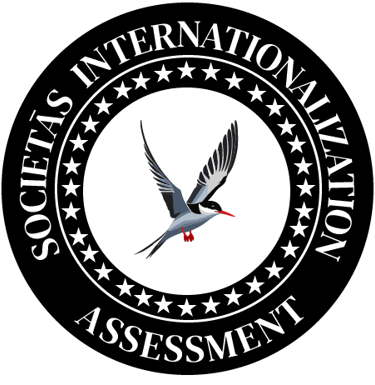
Societās Internationalization Assessment


Bridging the Gap Between Global Ambition and Institutional Reality.
Most universities have ambitious internationalization plans. Yet, strategies often falter not because of a lack of vision, but due to systemic disconnects. We identify the root causes of stagnation:
Strategic Coherence: Does your activity align with your specific institutional identity, or are you replicating generic models?
Governance Agility: Can your current structures support cross-departmental global initiatives, or do they create administrative gridlock?
Resource Alignment: Are investments focused on impact, or diluted across too many low-value partnerships?
Faculty Engagement: Does the academic core feel supported by the strategy, or do they view it as a distraction?
The Societās Internationalization Assessment dismantles these barriers, shifting your focus from transactional activity to systemic impact.
Global Strategy is Easy to Write. It is Hard to Implement.
True internationalization cannot be measured solely by the number of MOUs or student mobility figures. It requires a systemic view.
A Diagnostic Built for Complexity. The Societās Internationalization Assessment functions as an organizational MRI. We go beneath the surface metrics to diagnose the structural, cultural, and operational realities that determine your institution's global success.
Rigorous Analysis. Practical Solutions. Your team is already at capacity. Societās acts as a specialized extension of your office. We conduct the forensic analysis—reviewing data, interviewing stakeholders, and mapping processes—so you receive a clear roadmap without overburdening your staff.
Move Beyond Metrics of Volume. Measure Capacity and Impact


Our rigorous, research-based approach across three core pillars unlocks the drivers of success by identifying opportunities for growth
Institutional Capacity & Culture Are your people ready? We assess if your faculty and staff have the intercultural skills and incentives to engage. Is the campus culture inclusive enough to support your global ambitions?
Structural Readiness & Resources Is your system working? We analyze if your internal policies (finance, HR, legal) are enablers of global engagement or administrative bottlenecks.
Leadership & Governance Can you execute? We evaluate if there is a clear vision and if decision-making structures are agile enough to seize global opportunities.
Three Dimensions of Institutional Readiness


Level 1: The Diagnostic Review (4-6 Weeks) A rapid "health check" to identify immediate bottlenecks and key strengths. Ideal for new leadership seeking a high-level overview. (Scope: ~18 Indicators)
Level 2: The Strategic Assessment (3 Months) Deep analysis of operations and strategy to inform new strategic plans or accreditation cycles. (Scope: ~25 Indicators)
Level 3: Comprehensive Transformation (4-6 Months) Holistic restructuring of the international apparatus, governance, and culture to reposition your global standing. (Scope: ~50 Indicators)


Select Your Level of Insight
The Internationalization Maturity Model
Stage 1: Ad-Hoc: Activity is driven by individual faculty champions without central coordination or strategy.
Stage 2: Reactive: Engagement is transactional and opportunistic. Volume is high, but strategic impact is inconsistent.
Stage 3: Strategic: A clear vision exists. Systems are being put in place, though "implementation gaps" persist.
Stage 4: Integrated: Internationalization is systemic. It drives academic excellence and is supported by agile governance.


The Scholar-Practitioner Advantage
Societās Partnerships is led by Carlos Vargas, a leader with over 13 years of operational experience across three diverse university environments (University of Calgary, Carleton University, University of Toronto). We are not just observers; we are practitioners. We understand the nuances of university administration, the complexity of cultural adaptation, and the rigorous demands of academic research. We bring this multidimensional perspective—combining deep research with practical execution—to every engagement. We move beyond strategy to execution.


Consultation


